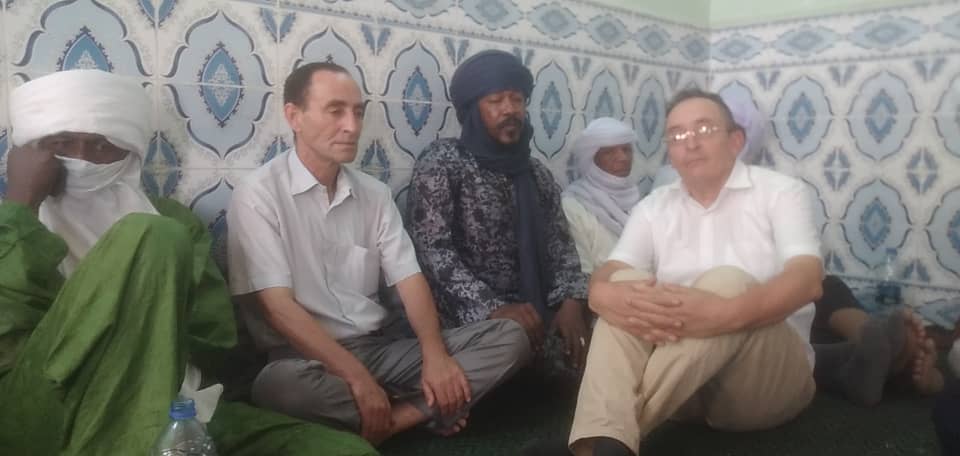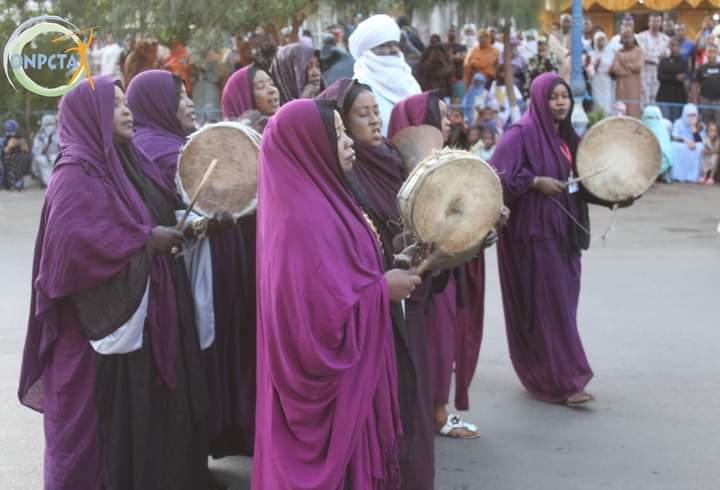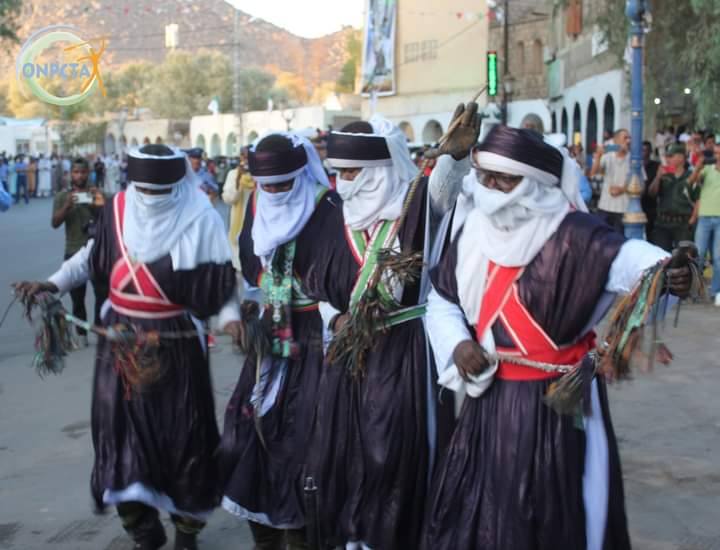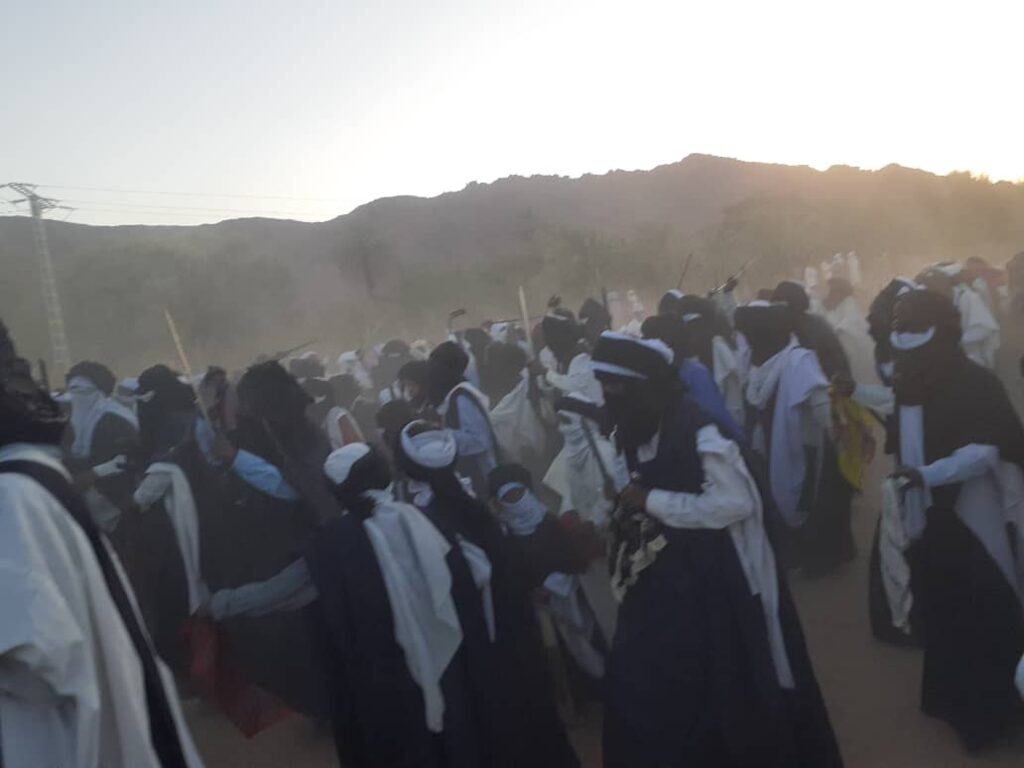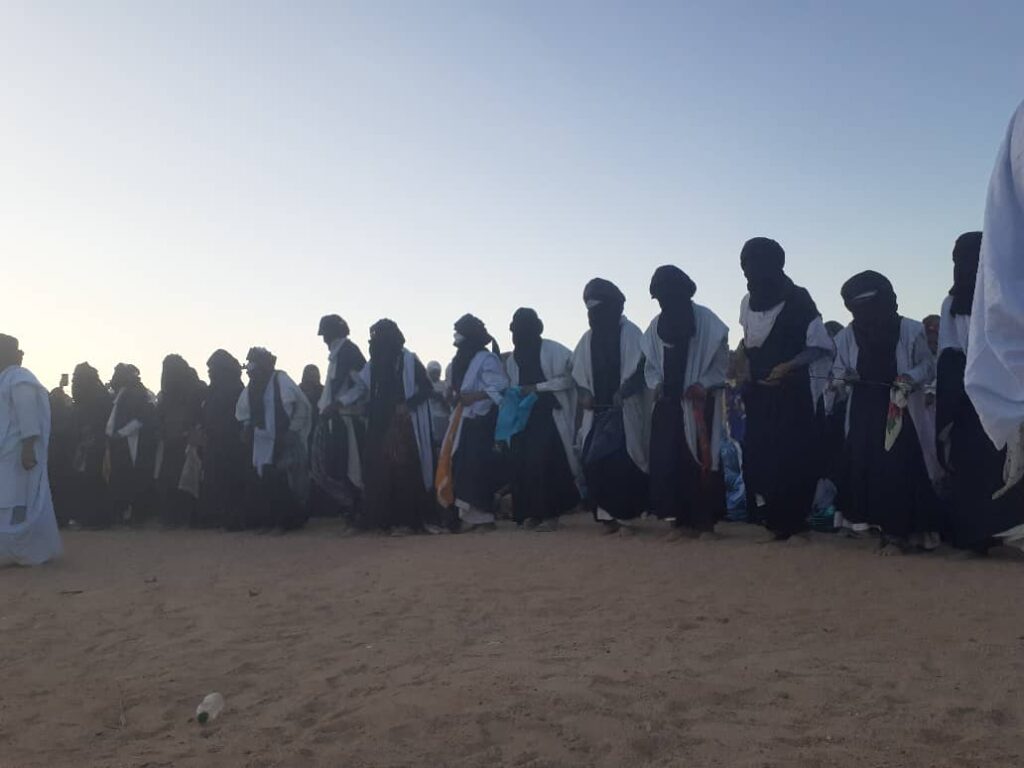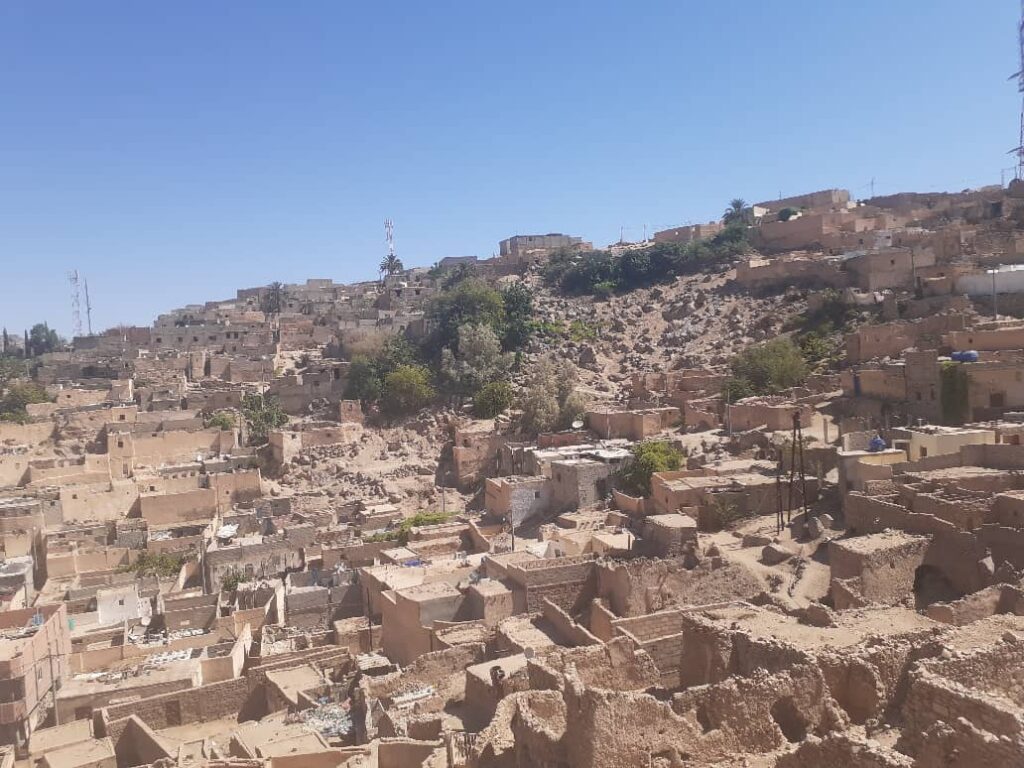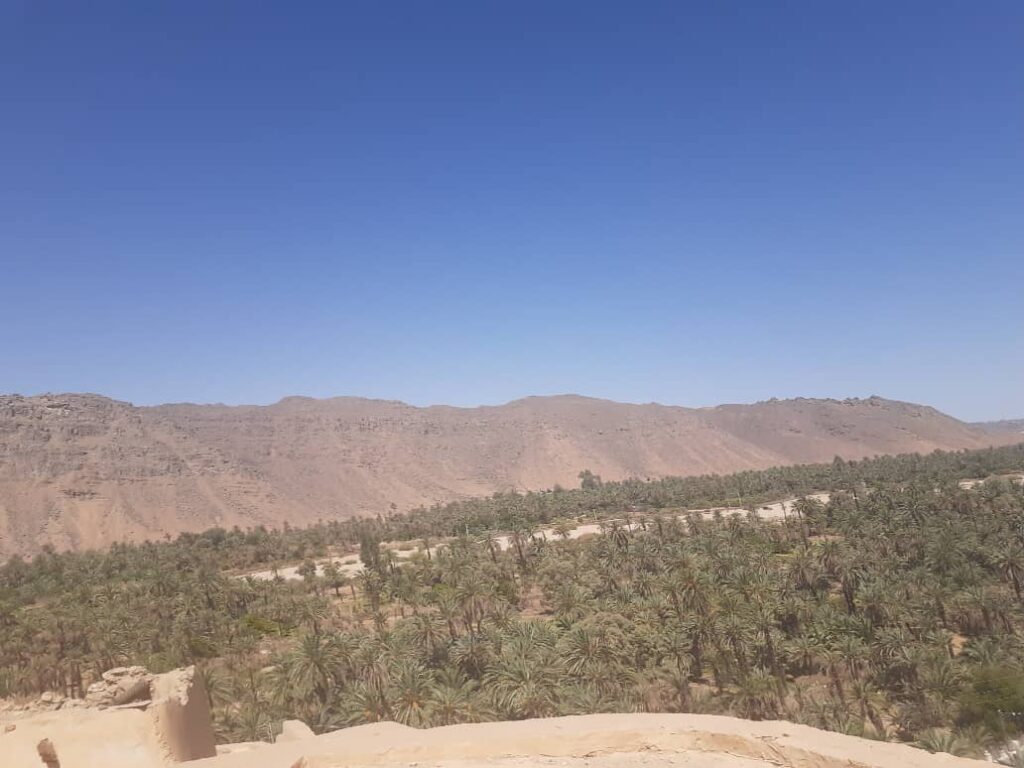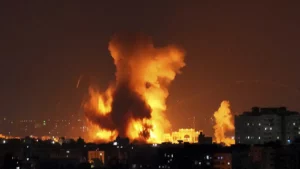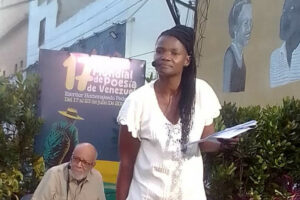By Achour Fenni, National Coordinator of WPM in Algeria
This is the name of the first month in the lunar calendar in Djanet. A City in the east-south of Algeria. On the first night, a woman descends with her drum into the arena and taps on it with a certain rhythm. Other tambourine carriers and singers chanting poetry follow. The drummers move, while the female singers stand in a row. The rhythm intensifies and is heard throughout the palace. The palace here is the old quarter. Built in clay. This takes place in the two main palaces of the city of Djanet in the same style. Mihan Palace and Azluaz Palace. The echo reverberates throughout the palace and the men begin to come in their original clothes, swords in hand, and long masks on their heads. The men are preparing for the occasion. Poems resonate with a certain rhythm. The dancers start moving and then enter the dance floor. They take off their slippers and go in. one after the other. The sword is in the right hand and the handkerchief is in the left. Movements to the right and others to the left. The ladies come forward, tapping the tambourines. Following the dancers. The singers remain standing and move their trunks from above to the right and then left. light movements; Their dress is sparkly indigo. On their heads also a special cover for the occasion.
Thus begins the preparations for the celebration of the first month of each year. Sbeiba. For eight consecutive days, the preparations – Timolaween – will continue every night in a public square in both of the palaces, in the presence of a well-known jury. Elders know the traditions of the celebrations and the history of the region’s culture. Sbeiba celebrations are 32 centuries old. On the ninth day everyone rests in preparation for the tenth day, Ashura. On that day, solemn ceremonies take place in a large square specially prepared for this purpose. The dancers come with tambourines behind them. The singers remain standing. The audience attends in large numbers. The celebration begins in solemnly. Almost the whole city attended. The competition between the two main palaces takes place in a festive, humorous and challenging atmosphere at the same time.
The celebration is supervised by the governorate of the local festival of Sbeiba, with the participation of knowledgeable, intellectuals and notables.
The evaluation is done by the judges and the public. The elements of the evaluation are clear: the strength of entering the ring. The beauty of dancing. The power of poems. The beauty of singing. The type and quality of swords. The power of clicking on tambourines. The dress, its beauty and its antiquity. The mask and its shape. The coordination of the dancers. Continuing to play and crowd it. These elements are known by most of the audience present, and therefore the competition between the two palaces appears transparent and all those present are partners in the arbitration.
What distinguishes this occasion is its connection with the social and historical context of the region, so that it has distinguished Djanet from the rest of its neighboring cities. A competition between the two cities in dance, poetry and singing, with the participation of women and men, young and old, and in the presence of a large audience and visitors from different regions and foreigners.
Sbeiba was also an occasion to meet poets, artists and intellectuals at the Mihan Palace. There were explanations given to the visitorss and guests. On the same occasion, the Algerian House of Poetry office was installed in Djanet. Artist Osmane Ougacem is claimed president. Then we had a tour to the third palace in the city: Agahil. A palace in the heart of the oasis. While the other palaces are on the side of the mountain. The city was three times destroyed by the floods of the valley – they call it the sea – and was finally rebuilt on the side of the valley. The visit ended with a tour with Professor Youssef Augacem to the Sahara desert. His culture and knowledge of the desert and its secrets was equivalent to his knowledge of the city and its history. Greetings to you people of Djanet.
